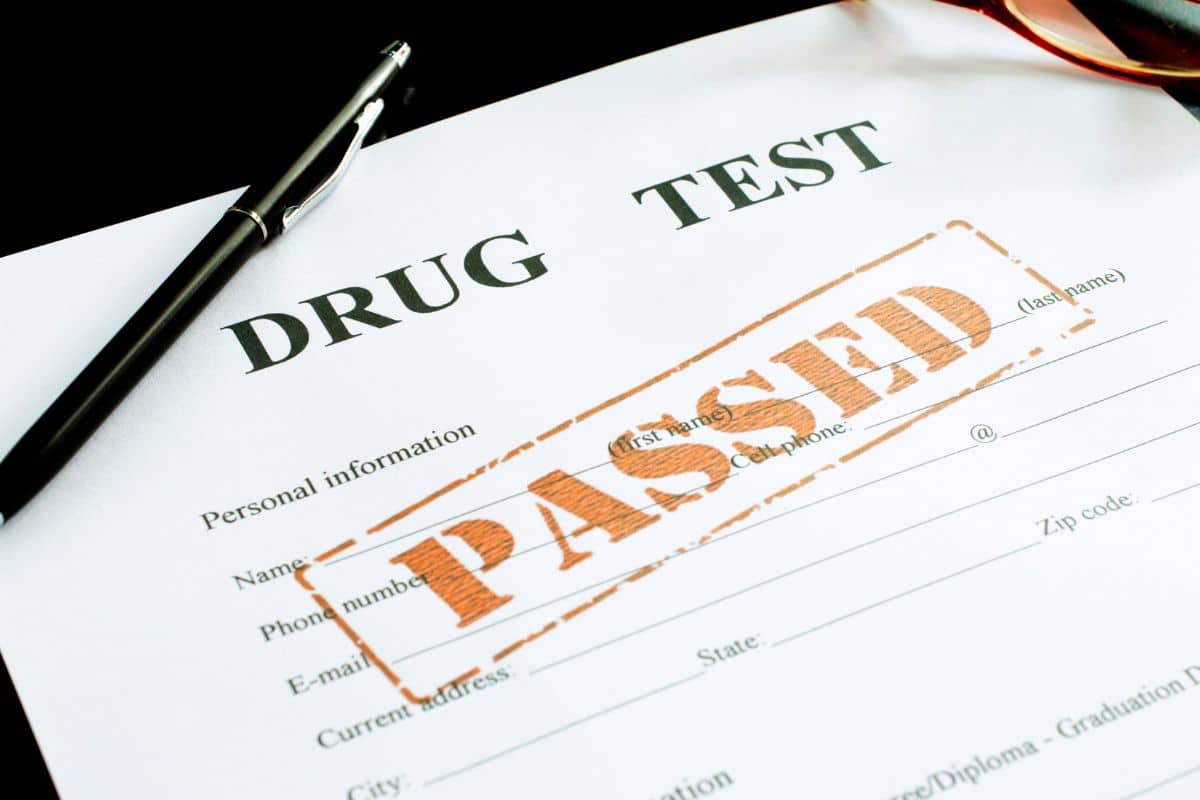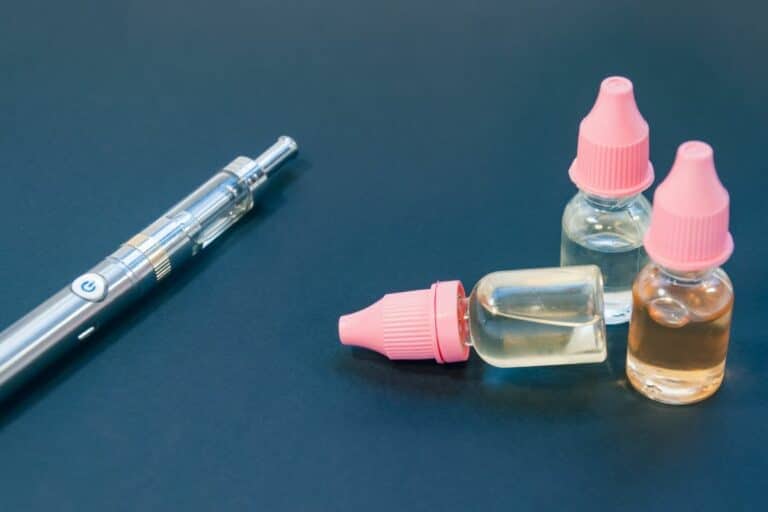How Long Does Delta 8 Take to Kick In: Factors Affecting Onset Time
Cracking the code on when Delta 8 THC kicks in is a game-changer for folks itching to soak up its chill vibe without any glitches. This cousin of the well-known Delta 9 THC, a staple in the world of weed, is winning hearts with its cool calm and staying on the right side of the law when it comes from hemp. Pop a Delta 8 snack, and you’re on your way to chill town. But wait! How fast you get there can change based on a few things like how you take it and your own body’s system. Click those links to jump into the **Delta 8 journey** and snag some insider advice not everyone knows. Want to make sure your Delta 8 ride is as smooth as can be? Stick around to uncover the secrets.
Table of contents
Inhaling Delta 8 through smoking or vaping typically results in a quicker onset of effects, often within minutes. This is because the compounds are absorbed directly into your bloodstream through the lungs. On the other hand, if you consume Delta 8 in the form of edibles, the onset is slower since it must pass through your digestive system before entering your bloodstream, which could take anywhere from 30 minutes to a couple of hours.
Your individual physiology also plays a significant role in how long Delta 8 takes to kick in. Factors like your metabolic rate, body mass, and tolerance to cannabinoids can influence how quickly and strongly you feel the effects. It’s important for users, especially those new to Delta 8 THC, to start with a low dose and wait to understand how their system reacts to the compound before consuming more.
Understanding Delta 8 THC
Delta 8 THC is a cannabinoid that shares some similarities with delta 9 THC, but has distinct chemical properties and effects. Recognizing how it differs and interacts with your body’s endocannabinoid system is key to understanding its impact.
Chemical Composition and Properties
Delta 8 THC (Δ8-tetrahydrocannabinol) is one of the many cannabinoids found in the cannabis plant. It is chemically similar to delta 9 THC (Δ9-tetrahydrocannabinol), but with a few notable differences. Its double bond is located on the eighth carbon chain, whereas delta 9 THC has this bond on the ninth carbon. This subtle shift significantly alters the molecule’s stability and affects how it interacts with your body. Delta 8 THC is typically less potent and is known for its psychoactive properties, although it is generally considered to produce milder effects.
Differences Between Delta 8 and Delta 9 THC
Unlike delta 9 THC, which is abundantly available in most cannabis strains, delta 8 THC is found in much smaller quantities. The psychoactive effects of delta 8 THC are often described as less intense, potentially providing a clearer experience without the anxiety and paranoia frequently associated with high doses of delta 9 THC. The lower psychotropic potency of delta 8 THC might make it a preferred choice for individuals looking for a reduced psychoactive experience.
Interaction With the Endocannabinoid System
Within your body, there exists an endocannabinoid system (ECS), which plays a role in regulating various physiological processes. Delta 8 THC binds to the CB1 receptors in the ECS, but due to its different structure, it does so with a different affinity compared to delta 9 THC. This results in its less potent psychoactive effects and a different array of therapeutic benefits. The interaction of delta 8 THC with your ECS may make it beneficial for soothing stress, among other possible effects.
Types of Delta 8 Products
When exploring the variety of Delta 8 products available, you’ll find that they primarily fall into three categories: gummies and edibles, vapes and inhalables, and tinctures and oils. Each category offers a different onset time for the effects of Delta 8 and comes in an array of flavors and potencies.
Gummies and Edibles
Delta 8 gummies and edibles offer a convenient and discrete way to consume Delta 8 THC. Typically, gummies range from various fruit flavors to more gourmet options, offering a precise dose in each piece. Delta-8 edibles take longer to start working, as they must pass through your digestive system, but the effects can last significantly longer compared to other methods.
- Common Flavors:
- Fruit Punch
- Mango
- Berry Blast
- Onset Time: 30 minutes to 2 hours
Vapes and Inhalables
If you are looking for a faster onset of effects, vapes and inhalables might be your preferred choice. Inhalation is the quickest method for Delta 8 THC to enter your bloodstream. Vaping devices range from disposable pens to refillable cartridges and offer a variety of flavor profiles.
- Vape Types:
- Disposable Pens
- Cartridges
- Onset Time: Within minutes
Tinctures and Oils
Delta 8 tinctures and oils are applied sublingually (under the tongue) for a rapid uptake into the bloodstream. They offer a controlled dosage via a dropper and can be mixed with food or beverages. Tinctures typically come in natural hemp or mixed with flavor enhancers to improve taste.
- Usage Tips:
- Place drops under your tongue
- Hold for 30-60 seconds before swallowing
- Onset Time: 15 to 45 minutes
Factors Influencing Onset Time

The time it takes for Delta 8 THC to take effect can vary greatly depending on several factors unique to you as an individual. From how much you consume to the way your body processes cannabinoids, these are the details that determine the speed at which you’ll experience the effects of Delta 8.
Dosage and Potency
The dosage of Delta 8 you consume plays a critical role in determining how quickly you feel its effects. A higher dose is likely to result in a quicker and more intense onset. Similarly, the potency of the product, which indicates the concentration of cannabinoids, directly impacts how long it will take for you to notice a high.
Consumption Method
The method of consumption also greatly affects onset time. Inhalation methods like vaping or smoking Delta 8 typically lead to quicker effects compared to edible forms. Sublingual tinctures may offer a middle ground, with onset times faster than edibles but slower than inhalation methods. The bioavailability of Delta 8 varies with each method, influencing how much of the cannabinoid enters your bloodstream.
Individual Metabolism and Body Weight
Your metabolic rate—how fast your body converts food into energy—affects how quickly you metabolize Delta 8. A faster metabolism generally leads to a quicker high. Additionally, your body weight can influence the distribution and storage of cannabinoids in your body, potentially altering onset time.
Frequency of Use and Tolerance Levels
The more frequently you use Delta 8, the more likely you are to build up a tolerance. Higher tolerance levels can mean that you need larger doses to achieve the same effects, which can alter onset time. Conversely, if you use Delta 8 infrequently, you might experience a faster and more pronounced high even at lower dosages.
Experiencing the Effects of Delta 8 THC

When you consume Delta 8 THC, the timeline and intensity of effects can vary based on several factors including the method of consumption, your body’s metabolism, and the potency of the product.
Initial Activation and Euphoria
The initial onset of Delta 8 THC typically occurs within 30 minutes to 1 hour if you are inhaling it through smoking or vaping. With edibles, the effects may take longer to manifest, commonly 1 to 2 hours after ingestion. Once activated, the euphoria is often described as a mild yet pleasurable sensation, offering a less intense experience compared to Delta 9 THC.
Therapeutic Benefits
Delta 8 THC is commonly associated with therapeutic benefits such as relaxation and relief from nausea or pain. Its effects may also contribute to a sense of calm and improved focus, which some users find beneficial for managing anxiety or stress. Remember that individual experiences with Delta 8 THC can vary, and these benefits are not guaranteed for every user.
Sensory and Cognitive Changes
The psychoactive effects of Delta 8 THC can lead to alterations in sensory perceptions and cognitive processes. You might notice a heightened sense of taste, sound, and visual stimuli. In terms of cognition, Delta 8 THC can influence your thought patterns, potentially enhancing creativity or altering your sense of time. While these changes are typically less pronounced than those caused by Delta 9 THC, they’re significant enough to be noticeable to users.
Safety and Side Effects
When you consider trying Delta 8 THC, it’s essential to be informed not only about the potential benefits but also the safety and side effects that could accompany its use. Understanding these factors can help you make well-informed decisions about whether Delta 8 THC is right for you.
Recognizing and Managing Side Effects
Delta 8 THC is generally well-tolerated, but like any compound, it may cause side effects in some users. Common side effects include:
- Dry mouth
- Red eyes
- Increased appetite
- Short-term memory impairment
- Slower reaction times
If you experience side effects, it’s crucial to evaluate the dosage and product quality, as these can significantly influence your experience. Reducing your dosage can help manage side effects. Staying hydrated and resting in a comfortable environment may also aid in coping with any adverse reactions.
Quality Control and Product Selection
To ensure you’re consuming a high-quality product, pay close attention to quality control measures taken by manufacturers. Opt for products from reputable companies that provide third-party lab testing results. This testing should confirm product purity and the absence of harmful contaminants such as pesticides and heavy metals. It’s also a wise precaution to read reviews and check certifications before making a purchase.
Legal Status and Compliance
The legal status of Delta 8 THC can vary widely, so it’s imperative to confirm that it’s legal in your state or country before acquiring it. Despite being federally legal under the 2018 Farm Bill, some states have specific regulations or bans against the sale and use of Delta 8 THC. Ensuring that you are in compliance with local laws helps protect you from legal repercussions and supports a responsible approach to exploring Delta 8 THC and its effects.
Drug Testing and Detection

When considering how long Delta-8 THC remains detectable in your system, it’s vital to understand the role of metabolites and how various drug tests may respond to different usage patterns. Let’s explore the factors that can impact drug testing results and strategies to manage potential legal implications.
Understanding Metabolites and Testing
Delta-8 THC, like its close relative Delta-9 THC, is processed by your body into several metabolites. These metabolites are what drug tests typically detect, rather than the presence of the drug itself. The urine test is the most common form of drug testing and can identify the presence of THC metabolites for days or even weeks after use. The duration of metabolites’ detectability can vary depending on factors like genetic makeup, hydration, and overall health.
Impact of Usage Patterns on Drug Tests
- Occasional Users: If you smoke or ingest Delta-8 THC infrequently, metabolites may be present in your urine for a shorter period, possibly up to 3 days.
- Frequent Users: Those who use Delta-8 THC more often may find that metabolites accumulate in fat cells, extending the detection window to several weeks or longer in urine tests. Blood and saliva tests generally have a shorter detection window but still vary by individual.
- Hydration and Health: Proper hydration can affect the concentration of metabolites in your urine, while your overall health can impact how quickly your body metabolizes substances.
Avoiding Positive Results and Legal Issues
Delta-8 THC is a hemp-derived substance with psychoactive properties and is treated differently than Delta-9 THC under law. However, because standard drug tests may not distinguish between different cannabinoids, using Delta-8 THC can lead to a fail a drug test scenario.
- Supplements: There are no guaranteed methods to cleanse your system quickly, and many supplements claiming to do so are not scientifically proven.
- Avoid using any form of THC if you expect to undergo a hair follicle test, which can detect drug use for up to 90 days.
Remember that while hydration can dilute urine samples, it cannot guarantee a negative test result, and deliberate tampering with samples can lead to legal consequences.
Tips for Responsible Use
When exploring the effects of Delta 8, it’s crucial to use it responsibly to ensure safety and a positive experience. Here are some specific guidelines to help manage your Delta 8 use effectively.
Starting with Lower Dosages
Begin with a low dosage of Delta 8 to understand how it affects your body. Each individual reacts differently, and starting small allows you to gauge your response. Consider a dosage that is less than what is suggested for an average user, and only increase it gradually if needed.
Monitoring Effects and Tolerance
Keep track of how Delta 8 affects you after each use. Maintain a log of dosages and the effects you experience, noting any changes in your response over time. As your tolerance may adjust, this will help you determine the most effective and safe dosage for your subsequent uses.
Staying Hydrated and Informed
Hydration is key while using Delta 8, as it can potentially affect your mouth and eyes, leading to dryness. Drink plenty of water before, during, and after your Delta 8 use. Stay informed about the substance, the laws in your area, and how it interacts with other substances or medications you might be taking.
Frequently Asked Questions
When exploring the effects of Delta 8, it’s crucial to understand how long it takes to work and the duration of its impact. This section addresses common inquiries regarding the onset and duration of Delta 8’s effects.
What is the average onset time for feeling the effects of Delta 8?
Typically, you can expect to feel the effects of Delta 8 within 30 minutes to an hour if ingested, although this time frame can vary based on the consumption method and individual factors.
Can Delta 8 induce sleepiness, and if so, after how much time typically?
Yes, Delta 8 can induce sleepiness. If you’re consuming Delta 8 for its sedative effects, you may start to feel drowsy around an hour after taking it.
What factors contribute to the variation in absorption rate of Delta 8?
Several factors affect how quickly Delta 8 is absorbed, including your metabolic rate, body chemistry, tolerance levels, and whether you’ve eaten beforehand.
Once Delta 8 effects are felt, how long do they usually persist?
The effects of Delta 8 can last anywhere from 3 to 8 hours, with the peak of the experience occurring about 3 hours after onset.
For a dosage of 25mg, what is the expected duration of Delta 8’s impact?
With a 25mg dosage, the effects of Delta 8 can generally be expected to last for the same 3 to 8 hours, although individual experiences may vary.
Are there any methods to expedite the onset of Delta 8’s effects?
To expedite the onset of Delta 8’s effects, you can use sublingual applications or inhalation methods, both of which can reduce the time to onset compared to ingestible forms.








